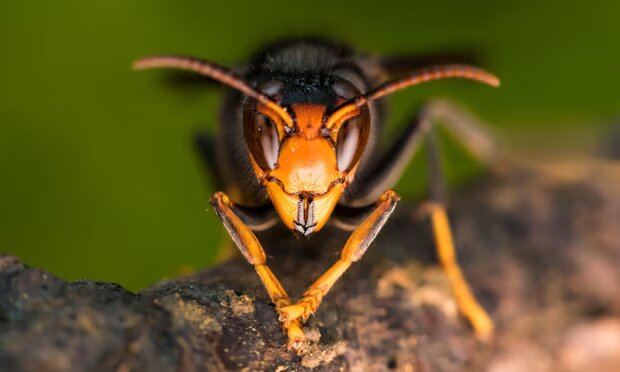The UK has not responded in kind to the EU’s prohibition on the import of potted plant soil, where certain species have the potential to go unnoticed during transport.
Amidst the post-Brexit landscape, a cautionary tale unfolds as experts warn that the United Kingdom’s embrace of lax trade rules may unwittingly open its doors to an invasion—of invasive species. The European Union, taking a leaf from the cautionary playbook, has barred the import of soil-laden pot plants from the UK, citing the stealthy potential of stowaway troublemakers like the elusive Asian hornet. Yet, curiously, the UK has not mirrored this move, leaving the kingdom vulnerable to unwelcome species hitching a ride in the soil.
The Asian hornet, a buzzworthy antagonist since its debut on the UK scene in 2016, has been making quite a stir with 45 sightings, including 29 nests, documented thus far. This year alone has witnessed 22 encounters, a stark uptick from the mere two sightings in 2022 and 2021. The Asian hornet’s dramatic arrival in Europe in 2004, likely tucked away in cargo from Asia, serves as a cautionary tale of unintended consequences that traversed the English Channel to reach British shores.
The government, acutely aware of the environmental threat, has identified 30 invasive animal species and 36 invasive plant species of concern. Yet, despite commendable domestic efforts to combat these intruders, the post-Brexit biosecurity framework has left something to be desired. Matt Shardlow, the bug-whisperer at the helm of insect charity Buglife, points out the discrepancy, noting, “On biosecurity, the government has left the door ajar.”
As the Asian hornet continues its continental conquest, the lack of reciprocal biosecurity measures from the UK is a glaring oversight. With the EU slamming the door on soil-infested pot plants, the UK’s open stance raises eyebrows, potentially allowing invasive species to waltz in with the soil-laden breeze.
Large insects braving the Channel on a daring flight might make for an enticing narrative, but experts argue that the more probable accomplice is the horticulture trade. A recent study underscores this, revealing that the horticulture trade serves as the primary gateway for species invasions, a clandestine plot unfolding in the petals and leaves of innocent-looking plants.
Enter the Windsor framework, a trade-friendly arrangement easing the flow of goods between Great Britain and Northern Ireland. However, lurking beneath its congenial surface is the potential for invasive species to ride the trade winds into new territories. Shardlow sounds the alarm, stating, “The Windsor framework reduces the level of control…meaning that should Asian hornets colonize the UK, the door is open for them to cross the Irish Sea and colonize Ireland.”
In response, the Department for Environment, Food and Rural Affairs (Defra) reassures the public that the UK boasts one of the toughest borders globally in fending off pests and diseases. Yet, as the narrative unfolds, the call to action echoes: citizens are urged to play their part in identifying and reporting these elusive invaders, ensuring the nation’s defenses remain as robust as the cliffs of Dover.
